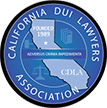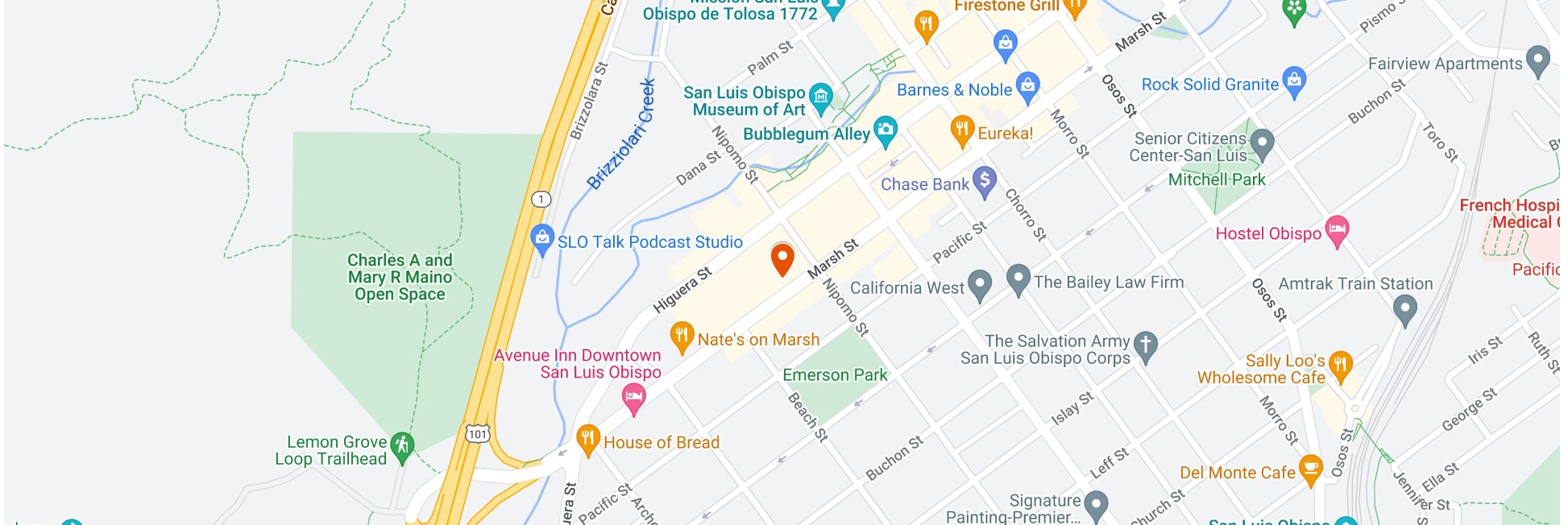California Vehicle Code 23152(f) is the primary code that criminalizes the offense of driving under the influence of drugs (DUID). Vehicle Code 23152(g) further criminalizes the crime of driving under the combined influence of both drugs and alcohol. Unlike the usual alcohol DUI where the legal limit for alcohol in your blood is 0.08%, DUID laws do not exclusively set the legal limit of drugs for you to be found guilty. So, prosecutors usually find it harder to prove DUID cases than normal DUI cases. Nonetheless, you face harsher penalties if you are convicted of DUID, especially when you don’t have legal counsel to defend you and review the evidence provided against you in court. That’s why we at San Luis Obispo DUI Attorneys invite you to get in touch with us for a comprehensive review of your case and help build a solid defense strategy.
Definition of California DUID
As mentioned earlier, the state has two laws regarding driving under the influence: vehicle codes 23152 f and 23152 g. Vehicle code 23152 f criminalizes driving a vehicle while a person is under the influence of drugs, while vehicle code 23152 g criminalizes driving a vehicle while a person is under the influence of both drugs and alcohol.
For purposes of VEH 23152(f), a drug is any substance (apart from alcohol)that can affect a person’s brain, nervous system, or muscle to an extent that the person loses the ability to drive as cautiously as an ordinary person would. This means that a person under the influence of drugs cannot drive in the same manner that an ordinary person would drive under the same circumstances.
Drugs are classified into:
- Legal drugs like marijuana (marijuana is legal but you can face driving under the influence of marijuana)
- Prescription drugs like Oxycontin, Vicodin
- Illegal drugs like ecstasy, cocaine, methamphetamine, and heroin
- Over-the-counter drugs like sleeping pills, antihistamines, and cold medicines
What is the Difference between Alcohol DUI and DUID
The main difference between alcohol DUI and DUID is that the former offense has a set legal limit (BAC of 0.08%) for determining “the influence.” This means you are under the influence of alcohol if your blood alcohol content exceeds 0.08%. On the other hand, DUID law does not set the legal limit for determining what level of drugs in the blood deems a person impaired or under the influence. As we will discuss below, the court will consider different factors to prove the element of “under the influence” in DUID cases.
Another difference is that the DMV will only suspend your driver’s license after a DUID conviction. This is in contrast to alcohol DUI cases where the DMV is likely to automatically suspend your license (before you are convicted)
Finally, DUID cases are somewhat harder to prove compared to alcohol DUI cases. This is because prosecutors will find it difficult to prove that you were actually under the influence, even if toxicology reports indicate traces of drugs in your blood. As a result, specially trained officers (Drug Recognition Experts/DRE) play an important role in the investigation and prosecution of DUID cases.
Elements of DUID: Role of Drug Recognition Expert
DUID elements fall under two categories:
-
You were driving
You must have been driving a vehicle at the time of the arrest. Vehicles include buses, trucks, cars, motorcycles, electronic bicycles and scooters, horse-drawn carriages, and motorized wheelchairs. Driving these vehicles means you were intentionally moving the vehicle using physical control.
Note that the vehicle does not need to be moving — even if the engine is off, the law enforcement officers will rely on circumstantial evidence that could imply you were under the control of the vehicle.
-
You were under the influence of drugs
You are deemed to be under the influence of a drug if you are not able to drive as an ordinary cautious driver would under similar circumstances. To prove this element, prosecutors will mostly rely on any tests to show traces of drug(s) in your blood, field sobriety tests, and the way you were driving. These issues might not conclusively indicate that you were under the influence, and this is where Drug Recognition Experts come in.
A DRE is a special officer who is trained to recognize the behaviors of a person caused by different drugs, analyze them, and connect them to the speech and coordination of the individual. Thus, the evidence provided by a DRE is more likely to carry heavier weight compared to testimony by the arresting officer.
Here is what the DRE will do:
- Confirm that the driver’s BAC does not indicate alcohol impairment (if so, it means the impairment is likely to be a result of a drug)
- Interview the arresting officer regarding the probable cause of arrest that could indicate drug impairment
- Check physical symptoms like pupil size, muscle tone, and pulse rate, among other physical symptoms that could indicate drug use
- Conduct horizontal gaze nystagmus test
- Re-administer field sobriety tests like walk and turn, one-leg stand, finger to nose, and Romberg balance tests
- Ask the driver about a history of drug use
- Perform blood or urine tests
Note that under the Fifth Amendment which protects your rights against self-incrimination, you don’t have to take any field sobriety tests or answer questions by the Drug Recognition Expert.
You might also refuse to take part in chemical tests (blood and urine tests) unless you are an underage driver or you are currently on DUI probation. If this happens, you are likely to face punishments for chemical test refusal.
Finally, the DRE should conduct any evaluation in a well-lit and controlled area such as a police station rather than the roadside. This should help in a better evaluation of the driver.
DUI Chemical Tests in DUID Cases
After an arrest, a driver is often required to take a breath or blood test. While taking a chemical test should be the driver’s choice, a driver might find themselves unable to legally refuse to take part in these tests. In this case, the driver is likely to face punishments for chemical test refusal (like automatic license suspension). On the other hand, refusing to take part in the test might lead to no DUI charges against you. This is why you need the help of a DUI attorney before you talk to the police. This might help guide you if you should take or refuse the tests.
Nevertheless, blood tests are mandatory under California law if the arresting officer:
- Has reasonable cause to believe that you are driving under the influence of a drug or both alcohol and drugs, AND
- Strongly believes the test will reveal evidence of being “under the influence.”
Since DUID cases are relatively harder to prove compared to alcohol DUI, most arresting officers don’t press for DUID charges if you exceed the legal BAC limit after a breath test. If you exceed the legal BAC limit, you are likely to face:
- DUI (VEH 23152 (a)), and/or
- Violating other DUI per se laws (Vehicle Codes 23152 (b), (d), (e), and underage DUI/ VEH 23140
If you still exhibit impairment after a breath test that reveals you are not under the influence of alcohol, you are likely to be required to take a blood test.
The purpose of blood tests in DUID cases is to show:
- The type of drugs in your system
- The quantity of drugs in your system
- The probable range that you used the specific drug
The above issues will be determined after a toxicology report that begins with analyzing a blood sample using a DUI blood toxicology screen. This will identify if there are any drugs in the blood, i.e., if the driver tests positive or negative. After testing positive, a quantitative analysis is done to determine the quantity of a specific drug in the blood after which the probable range that the drug was taken is likely to be determined.
The DUID Trial
While blood tests help a lot in detecting drugs and their quantity in the blood, these tests do not give conclusive results since a positive test does not imply impairment. Therefore, the trial will largely depend on testimonies from the arresting officer, the DRE, and expert witnesses.
Testimony from Arresting Officer
An arresting officer is a person who kickstarts the arrest process. As such, they will be the first person to testify in your trial. The court is mainly interested in the probable cause of the arrest and why he/she believed the driver was impaired.
The officer is likely to claim that:
- You exhibited an unsafe driving manner that led to a pullover
- You had physical symptoms of intoxication which could include slurred speech, unsteady gait, red/watery eyes, etc
- Your failure to perform field sobriety tests as required
A Preliminary Alcohol Screening (PAS) Test (specifically a breath test) can also be used to indicate intoxication (for driving under the influence of drugs or both drugs and alcohol). The challenge happens when a breath test shows a negative result for alcohol. Since the officer would not be able to perform any other field test regarding drug impairment, they might argue that they suspected you were using drugs since alcohol could not account for impairment.
Testimony from the Drug Recognition Expert
Drug Recognition Experts usually carry the most important part in a DUID trial. These officers are not only trained to analyze the behavioral signs of drivers with respect to certain drugs but also to expertly testify in court. As a result, these officers work closely with prosecutors to put forward a convincing testimony.
As with many expert witnesses, the DRE will talk about their qualifications and training as well as their responsibilities in the trial. As mentioned before, the main responsibilities of a DRE are to confirm that a driver’s impairment is not a result of alcohol, the driver had drug impairment that was not caused by a medical condition, and to highlight the kind of drugs that lead to the driver’s impairment.
The officer should inform the court about the steps taken in determining that the driver was impaired, including the evaluation process and where they were performed.
Note that the California Highway Patrol runs the DRE program, so in some instances, your case might not be assigned a DRE depending on the severity of the case and the county of arrest. If this happens, the prosecution is not likely to build a strong DUID case against you. If so, your DUI defense attorney might enter a plea bargain or even have the case dismissed for lack of an expert witness.
Testimony from an Expert Witness
The main role of an expert witness is to testify on whether the blood test results conform with different studies of impairment for the particular drug. Thus, the prosecution will avail the positive DUI blood tests indicating the presence and quantity of a particular drug, and convince the judge or jury that the drug resulted in driving under the influence.
Possible DUID Defenses
Since DUID cases fall under two elements (you were driving under the influence, and the influence was a result of a drug), your defense team will take two angles:
- Proving that you were not under the influence
- Challenging drug impairment
You were not Driving Under the Influence
This defense will majorly rely on the circumstances of your arrest and how any tests were performed. Firstly, your team can argue that the arresting officer did not have any reasonable or probable cause to arrest you. Secondly, you were not advised of your right to remain silent, which might have led to self-incriminating statements. Finally, the authorities did not follow the correct procedures for collecting, storing, and analyzing chemical tests.
Positive Blood Tests do not Imply Impairment
As mentioned before, there is no scientific proof that indicates the presence of drugs means a person is impaired. This is because our bodies react differently to different drugs. Our bodies also develop tolerance to drugs when we use the drugs over an extended time. In such a case, a person who has been using a certain drug for a long time might not show the same signs as a casual user, in which case a conviction based only on the connection of a positive blood test and impairment would be unfair.
Drugs also have varying detection windows. For example, you might be pulled over and perceived to be under the influence of drugs just because you smell certain drugs that you used a while ago (say a day before). An example of such a drug would be medicinal marijuana: if you use the drug to treat arthritis, then your hands shake when the officer approaches you, they might take it to mean a sign of intoxication, which is not true.
Innocence
We all approach different circumstances differently. Unfortunately, most officers take a certain sign to mean a specific thing. For instance, your alleged signs of impairment could be a result of lack of sleep, sickness, allergies, nervousness, etc., and not drug or alcohol use.
The Tests Are Not Always Correct
Your blood or urine test can turn out positive, but that doesn’t always imply the results are accurate. This would likely occur if the procedures are not followed correctly when performing the tests. Your attorney can challenge how the results were carried out and even have the tests re-done on blood splits. Blood splits are a portion of blood samples that are saved for retesting by the defendant. These samples are available for a year.
DUID Sentencing and Punishment
The court will consider the following in determining the sentencing and punishment of a DUID conviction:
- Your criminal history
- The offense circumstances
- Injuries to any parties
- If you would benefit from a drug treatment program
DUID is typically a misdemeanor. It becomes a felony if a third party was killed or injured, it is a 4th DUI, and you have at one prior felony DUI conviction.
Misdemeanor penalties will typically include:
- Informal DUI probation (3 to 5 years)
- A minimum fine of 390 dollars
- At least 6 months of license suspension
- DUI school for a minimum of 3 months
In addition to the above penalties, a DUID conviction could carry a minimum county jail sentence of 6 months. However, this usually happens to 2nd and 3rd DUID offenses, which also carry an extended license suspension period.
For a felony DUID conviction, you are likely to face:
- 16 months to four years sentence in prison or jail
- 1000 dollars to 5000 dollars in fines
- A minimum of one year of license suspension or revocation
Note that you are not eligible for a drug diversion program if you are convicted of DUID. However, an experienced attorney can help you to participate in other diversion programs if you plead to be under the influence of a controlled substance under HS 11550.
Find a Local San Luis Obispo DUI Attorney Near Me
DUID charges can prove harder to prosecute compared to regular DUI charges. This is because prosecutors will find it hard to show the correlation between impairment and the presence of drugs in the blood. Nevertheless, you need a knowledgeable attorney that can strongly challenge the evidence leveled against you in court, even if the blood tests show a positive drug result. If you are in San Luis Obispo, reach out to San Luis Obispo DUI Attorneys at 805-321-1000 to discuss your case and how we can help you.







